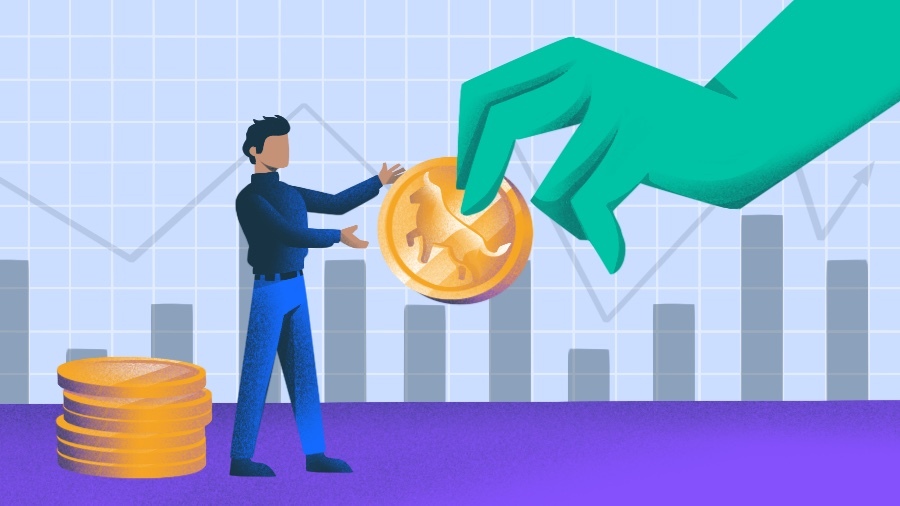When I used Robinhood for the first time back in 2015, I remember thinking that it could be one of the great economic equalizers of our time. Opening my own brokerage account a few years prior had been a nightmare of paper checks, fax machines and double-digit commissions on every trade.
Subscribe to the Crunchbase Daily
This platform, by contrast, had the potential to bring the excitement and opportunity of investing to everyone.
Fast-forward five years, and that promise has been realized. A growing number of people are choosing to manage their own portfolios of stocks and digital currencies. More than 10 million new individual investors poured into the stock market in 2020 alone, many of them young, burned by wage stagnation, and locked out of traditional wealth-building channels like homeownership.
This is a pivotal moment in the liberation of the public markets, and it warrants a reflection on what comes next — and how to shape it.
The risks are real. Without a rigorous understanding of financial products and how the markets work, amateur investors can risk too much or fall prey to nefarious actors. However, the idea that it’s simply too dangerous for regular people to invest directly in the stock market is a myth — one propagated by the very financial institutions and advisers who stand to gain by keeping the markets shrouded in mystery.
Economic inequality has skyrocketed over the last 50 years, due in part to deregulation of the economy and financial markets. That allowed major financial institutions to take on an increasing amount of risk, often backed (or bailed out) by the government, and to reap outsized rewards.

Education is the silver bullet. Americans do not need to be protected from a free public stock market; they need to learn enough to participate responsibly, feel confident about the risks they choose to take, and realize the financial gains that big institutions and the wealthy have been enjoying for decades.
Self-directed market participation is one of the best ways for young people in particular to put their financial futures on the right track: The value of active investing is not only increased wealth, but also increased knowledge and skills. Give Gen Z a stock, and they will still need to hire a financial adviser tomorrow; teach Gen Z to trade, and they will be richer all their life. Imagine how much more valuable it is to learn that lesson at age 12 than 32.
Robinhood’s IPO isn’t just an investment opportunity; it’s a milestone in how the world understands retail participation in the markets. A culture of widespread, responsible individual investing could be established in America if collective learning and sharing is encouraged in a productive way.
As I read the many comments and posts about the S-1 filing — all over Twitter, Reddit, Commonstock — I’m exhilarated. While much remains unknown, what is clear is that more Americans will know more about public markets and investing than ever before. To me, that’s reason enough to throw confetti.
David McDonough is the founder and CEO of Commonstock, a San Francisco-based broker-agnostic social investing platform for investors to share ideas and knowledge. The company currently has more than $1 billion in assets connected to its platform.
Illustration: Dom Guzman

Stay up to date with recent funding rounds, acquisitions, and more with the Crunchbase Daily.






![Illustration of a man sitting on a huge pile o' money. [Dom Guzman]](https://news.crunchbase.com/wp-content/uploads/Giant_Funding-300x168.jpg)
![Illustration of remote meet on cellphone, unicorn chess piece and money. [Dom Guzman]](https://news.crunchbase.com/wp-content/uploads/business-strategy-300x168.jpg)
67.1K Followers